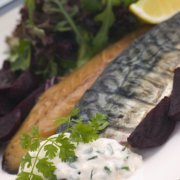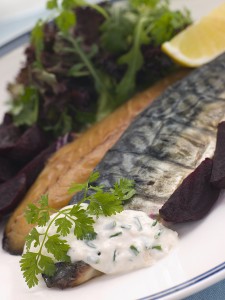 Holiday homeowners will have for a long time realised the importance of guest reviews; Tripadvisor has been at the centre of where many seek guest reviews for hotel and self-catering accommodation for more than fifteen years. You’ll not be surprised to hear that 90% of guests indicate they’re influenced by what they read online.
Holiday homeowners will have for a long time realised the importance of guest reviews; Tripadvisor has been at the centre of where many seek guest reviews for hotel and self-catering accommodation for more than fifteen years. You’ll not be surprised to hear that 90% of guests indicate they’re influenced by what they read online.
If your holiday home has its own website you may have noticed recently that Google has now started to display guest reviews next to your cottage search listing; you’ll not only find Google reviews but also a section entitled ‘Reviews from the web’ which will cover those left on social networking sites such as Facebook.
Never have guest reviews been so easy to find, scrutinise and digest, meaning that it’s equally never been as important to ensure your cottage has the reviews it deserves.
Here are a few quick pointers on how to get more reviews, and how to handle them, whether positive or poor.
Getting guest reviews
We know they’re worth their weight in gold, but how do you actually get guests to leave you a review?
Embrace reviews within your procedures
If you leave it to your guests, the only reviews you’re likely to be left are those that have found an issue. Send a quick email as soon as they get home asking them to fill out a few questions on their experience. Remember this is taking time out of their day so it can increase response rates if you offer some sort of incentive; perhaps entering them into a competition or perhaps a discount on their return stay.
Strike while the iron is hot, and ensure the potential incentive is large enough to illicit a response, but not so large as to make it unfeasible!
Your guest book
People still like to write comments in a guest book so make sure you have a note on yours saying that you will use the comments for promotional purposes. Reviews can then be added to your own website to increase booking conversions from online visitors.
Engage on social media
A review on Facebook is worth its weight in gold; not only can it be displayed on Google, their friends will also see it too. You can run potential competitions for previous guests leaving reviews. Engaging with potential and previous guests on Facebook should form part of your customer service and booking acquisition strategies.
Responding to reviews
Once you’ve got someone to review you, it’s only polite to reply thanking them. This certainly doesn’t mean a cut and paste of the same phrase you use on everybody; take the time to make it a little more personal!
If you get a negative review, then the best thing to do is reply in a professional and polite manner. Address the problem. If there is a bigger issue ask them to contact you directly so you can resolve the issue. A bad review may make new guests hesitant, a professional response from you puts you back into a positive light. Potential guests will take a balanced view making them more inclined to book with you.
If you can, avoid responding immediately after a negative comment. It can be taken personally meaning that any response you write in that moment could inflame the situation. Tone is very difficult to detect online. If you’re unsure about what you’ve written make sure you have someone impartial to read it for you.
Making the most of reviews
If you’ve got them then make sure you show them off. Make your Tripadvisor reviews easy to access from your website and include plenty of testimonials in your site’s design.
Remember that people won’t necessarily read every page you have, or see everything you ever publish. Make sure a nice quote is tweeted, posted to Facebook and included in e-shots.
Boshers offer specialist holiday home insurance to owners across the UK. For more information on how a specialist insurer can help and support you if you’re buying a holiday cottage to let, please give us a call on 01237 429444.



 When the romantic and swashbuckling television costume drama Poldark returned to our screens not many of the millions of viewers would have been thinking about a 65% spike in visits to the local tourism website, the largest since Cornish sailor Ben Ainsley made his way through the Duchy clasping the Olympic torch a little over three years ago.
When the romantic and swashbuckling television costume drama Poldark returned to our screens not many of the millions of viewers would have been thinking about a 65% spike in visits to the local tourism website, the largest since Cornish sailor Ben Ainsley made his way through the Duchy clasping the Olympic torch a little over three years ago.
 Great food, fine wine, a relaxing atmosphere; these are things that many visitors will be looking to enjoy in local pubs and restaurants during their stay.
Great food, fine wine, a relaxing atmosphere; these are things that many visitors will be looking to enjoy in local pubs and restaurants during their stay.